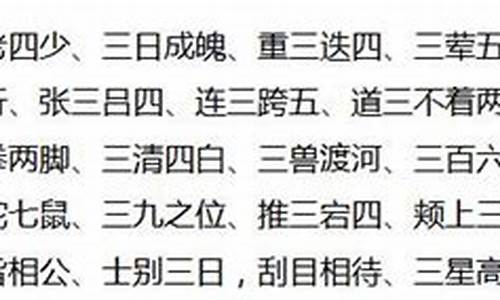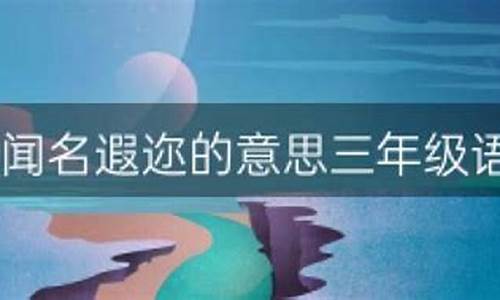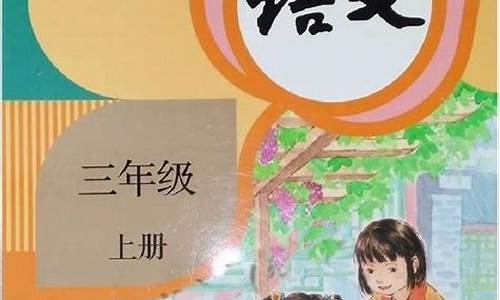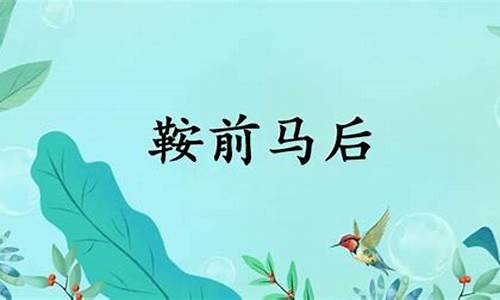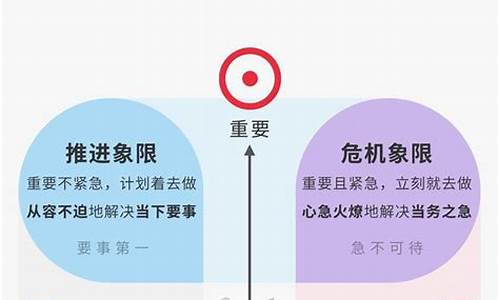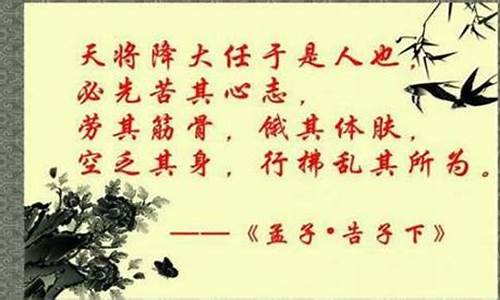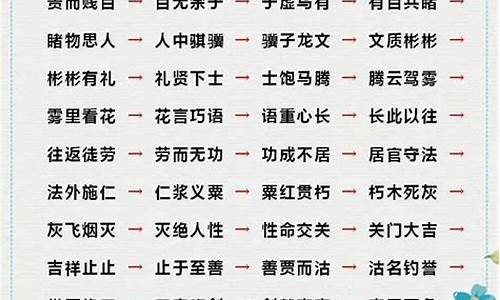英文成语小故事
大家好,今天我想和大家分析一下“英文成语小故事”的优缺点。为了让大家更好地理解这个问题,我将相关资料进行了整合,现在就让我们一起来分析吧。
1.少儿英语成语故事:毛遂自荐
2.谁知道揠苗助长这个故事用英文怎么翻译 急需。
3.成语故事 英文版
4.用英文翻译‘刻舟求剑’这个成语故事?
5.《叶公好龙》的成语故事中英文版
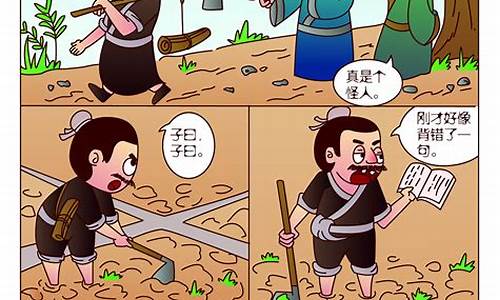
少儿英语成语故事:毛遂自荐
volunteer to do sth/recommend oneself毛遂自荐
In the Warring States Period, the State of Qin besieged the capital of the State of Zhao.战国时代,秦国军队攻打赵国的都城。
Duke Pingyuan of Zhao planned to ask the ruler of the State of Chu personally for assistance.He wanted to select a capable man to go with him. 赵国的平原君打算亲自到楚国去请救兵,想挑选一个精明能干的人一同前去。
A man called Mao Sui volunteered. 有一个名叫毛遂的人,自告奋勇愿意同去。
When the negotiactions between the two states were stalled because the ruler of Chu hesitated to send troops, Mao Sui approached him, brandishing a sword. At that, the ruler of Chu agreed to help Zhao, against Qin.平原君到楚国后,与楚王谈了半天,没有一点结果。毛遂怒气冲冲地拿着宝剑,逼近楚王,终于迫使楚王答应出兵,与赵国联合共同抵抗秦国。
This idiom means to recommend oneself.“毛遂自荐”这个成语用来比喻自己推荐自己,不必别人介绍。
文化链接
英文中“毛遂自荐”可以说成“volunteer to do sth”,“volunteer”既可以作名词,也可以作动词,作名词时的意思是“志愿者”,作动词就可以解释为“志愿去做什么事”,就是“毛遂自荐”啦~
我们来一起看几个例句吧~
Our company volunteered to support and help the victims. 我们的公司毛遂自荐来帮助受灾灾民。
You can volunteer to work one or multiple shifts。你可以毛遂自荐做单班制,也可以选择多班制。
谁知道揠苗助长这个故事用英文怎么翻译 急需。
江郎才尽
Southern Dynasties of Jiang Yan, word Wen-tung, when he was young, became a Dingdingyouming writer, his poems and articles at the time received high acclaims. However, when he is getting older, he has not previously written an article good, but a lot of setbacks. His poems written in prosaic; and pick up a pen-yin grip for a long time, still can not write a word, the occasional inspiration came; poem written, but the textual Kuse, content, plain were completely useless. So some people to legend, once a boat parked in Chan Jiang Yan-Ling Monastery river and dream of a self-named Zhang Jingyang person; to his followers repay a silk, he would arrest a few feet from her, he is also silk. Thus, his article there will be no wonderful. It was also legend; once the rule of Jiang Yan in the booth sleeping too; dreamed that a person claiming to Guo Pu, walked over to his side, his claim to the pen, said to him: "Man Michie, I have a pen in your place has been a long time, and now should be able to give it to me the bar! "Jiang Yan heard, they dig out from his arms, he is also a five-color pen. Reportedly Since then, Jiang Yan on Evans exhausted and could not write the article in any good.
Jiang Yan's talent has not really run out, but he was an officer after the one hand, as the Chief busy, on the other hand also because of career proud of, without their own write, to sweat, they did not write the. Over time, the article will bring out less, lacking in talent. (Excerpt from "Practical Writing" 1995 No. 8 "I hope," Jiang "was not exactly")
南朝的江淹,字文通,他年轻的时候,就成为一个鼎鼎有名的文学家,他的诗和文章在当时获得极高的评价。 可是,当他年纪渐渐大了以后,他的文章不但没有以前写得好了,而且退步不少。他的诗写出来平淡无奇;而且提笔吟握好久,依旧写不出一个字来,偶尔灵感来了;诗写出来了,但文句枯涩,内容 平淡得一无可取。于是就有人传说,有一次江淹乘船停在禅灵寺的河边,梦见一 个自称叫张景阳的人;向他讨还一匹绸缎,他就从怀中拘出几尺绸缎还他。因此,他的文章以后便不精彩了。又有人传说;有一次江淹在冶亭中睡午觉;梦见一个自称郭璞 的人,走到他的身边,向他索笔,对他说:“文通兄,我有一支笔在你那儿已经很久了,现在应该可以还给我了吧!” 江淹听了,就顺手从怀里取出一支五色笔来还他。据说从此以后,江淹就文思枯竭,再也写不出什么好的文章了。
其实并不是江淹的才华已经用完了,而是他当官以后,一方面由于政务繁忙,另一方面也由于仕途得意,无需自己动笔,劳心费力,就不再动笔了。久而久之,文章自然会逐渐逊色,缺乏才气。(节选自《应用写作》1995年第8期《但愿“江郎”才不尽》)
成语故事 英文版
谁知道揠苗助长这个故事用英文怎么翻译 急需。
揠苗助长(To Pull up the Seedlings to Help Them Grow)
Once upon a time, an old farmer planted a plot of rice. Everyday he went to the field to watch the seedlings grow. He saw the young shoots break through the soil and grow taller each day. But still, he thought they were growing too slowly. He got impatient with the young plants. "How could the plants grow faster?" He tossed in bed during the night and could not sleep. Suddenly he hit upon an idea. He had an idea not wait for daybreak. He jumped out of the bed and dashed to the field. By the moonlight, he began working on the rice seedlings. One by one, he pulled up the young plants by half an inch. When he finished pulling, it was already morning. Straightening his back, he said to himself, "What a wonderful idea! Look, how much taller the plants have grown one night!" With great satisfaction, he went back home. He told his son what he had done in a triumphant tone. His son was shocked. Now the sun had risen. The young man was heart-broken to see all the pulled-up young plants dying.
People now use " Ba Miao Zhu Zhang" to describe the behavior of those who are too eager to get something done only to make it worse. The idiom is a bit like the English proverb "Haste makes waste" ------to spoil things by excessive enthusia *** .
异译
古时候宋国有个农夫,种了稻苗后,便希望能早早收成。
每天他到稻田时,发觉那些稻苗长得非常慢。他等得不耐烦,心想:"怎么样才能使稻苗长得高,长很快呢?想了又想,他终了想到一个"最佳方法",就是将稻苗拨高几分。
经过一番辛劳后,他满意地扛锄头回家休息。然后回去对家里的人表白:"今天可把我累坏了,我帮助庄稼苗长高一大截!"
他儿子赶快跑到地里去一看,禾苗全都枯死了。
人们现在用拔苗助长形容急于求成,违法客观规律,只会把事情办坏。成语有点像西方的谚语“欲速则不达”——过度的热情只会把事情办坏
揠苗助长后面的翻译天下不助苗生长的人实在很少啊。以为没有用处而放弃的人,就像是不给禾苗锄草的懒汉。妄自帮助它生长的,就像拔苗助长的人,非但没有好处,反而危害了它。
这段文字出自《孟子.公孙丑上》,是“拔苗助长”成语的典故。孟子借此喻向公孙丑说明如何培养人的浩然正气,要靠义与道相配合,需要靠不断累积正义之举而获得,且要不听培养,不能停止和忘记,不能贪快妄进。
揠苗助长 翻译(字词也要0就是不按寻常路
古文 《揠苗助长》翻译一句话天下人不犯这种拔苗助长错误的是很少的。认为养护庄稼没有用处而不去管它们的,是只种庄稼不除草的懒汉; 一厢情愿地去帮助庄稼生长的;就是这种拔苗助长的人,不仅没有益处,反而害死了庄稼
揠苗助长这些词语还有什么欲速不达 [yù sù bù dá]
生词本
基本释义
欲:想要。想求快速,反而不能达到目的。
出 处
《论语·子路》:“无欲速;无见小利。欲速则不达;见小利则大事不成。”
例 句
磨刀不误砍柴工,宁可少生产一些,也要先把装置维修好,不然~
求揠苗助长故事中“予”在文中指“我”读音()
yu 三声
守株待兔:株:露出地面的树根。原比喻希图不经过努力而得到成功的侥幸心理。现也比喻死守狭隘经验,不知变通。典出自《韩非子·五蠹》记载:战国时宋国有一个农民,看见一只兔子撞在树根上死了,便放下锄头在树根旁等待,希望再得到撞死的兔子。结果自然再无所获!近义词:墨守成规。
揠苗助长原文断句揠苗助长
(选自《孟子.公孙丑章句上》)
宋人有悯其苗之不长而揠之者,芒芒然归,谓其人曰:“今日病矣!予助苗长矣。”其子趋而往视之,苗则槁矣。
天下之不助苗长者寡矣。以为无益而舍之者,不耘苗者也;助之长者,揠苗者也。非徒无益,而又害之。
翻译 :
战国时候,宋国有个农民种了一块地。栽下禾苗后,他希望它很快长高。结出果实。他每天都到地里去看,但禾苗长得很慢,他心里非常着急。怎样才能让禾苗尽快长高呢?
天气很好,艳阳高照,他到地里去把禾苗一一拔高。回家后,他很得意地对家里人说:“累死我了,我帮助禾苗长高了。”他的儿子到地里一看,禾苗全枯死了。
拔苗助长:原作“揠苗助长”,后作“拔苗助长”。
如何讲解“揠苗助长”这个成语中华成语大词典
揠苗助长
拼音:yà miáo zhù zhǎng
解释:揠:拔。把苗拔起,以助其生长。比喻违反事物发展的客观规律,急于求成,反而把事情弄糟。
出处:《孟子·公孙丑上》:“宋人有闵其苗之不长而揠之者,茫茫然归,谓其人曰:‘今日病矣,予助苗长矣。’其子趋而往视之,苗则槁矣。”
示例:对学生的教育既不能~,也不能放任自流。
近义词:欲速不达
反义词:放任自流、循序渐进
歇后语:宋国的农夫
语法:作主语、宾语;同“拔苗助长”
英文:spoil things by excessive enthusia *** as one who tries to help the shoots grew by pulling them up
成语故事:从前宋国一个农夫担心自己田里的禾苗长不高,就天天到田边去看。三天过去了,禾苗没见动静。他想出一个办法,就急忙奔到田里,把禾苗一棵棵拔高一些。回去对儿子说禾苗长高了一大截,儿子跑到田里一看,禾苗全都枯死了
揠苗助长这四个字的意思解释:揠:拔。把苗拔起,以助其生长。比喻违反事物发展的客观规律,急于求成,反而把事情弄糟。
出自:《孟子·公孙丑上》:“宋人有闵其苗之不长而揠之者,茫茫然归,谓其人曰:‘今日病矣,予助苗长矣。’其子趋而往视之,苗则槁矣。”
示例:对学生的教育既不能~,也不能放任自流。
近义词:欲速不达
反义词:放任自流、循序渐进
语法:连动式;作主语、宾语;含贬义
刻舟求剑的中文解释
以下结果由汉典提供词典解释
解释:比喻不懂事物已发展变化而仍静止地看问题。
出自:《吕氏春秋·察今》》:“楚人有涉江者,其剑自舟中坠于水,遽契其舟曰:‘是吾剑之所从坠。’舟止,从其所契者入水求之。舟已行矣,而剑不行,求剑若此,不亦惑乎?”
示例:似你这样寻根究底,便是~,胶柱鼓瑟了! ◎清·曹雪芹《红楼梦》第一百二十回
近义词:守株待兔、墨守成规
反义词:看风使舵、见机行事
语法:连动式;作谓语、定语、状语;含贬义
"揠苗助长"的故事形成于哪个时期春秋战国
用英文翻译‘刻舟求剑’这个成语故事?
掩耳盗铃Plugging One's Ears While Stealing a Bell
春秋时侯,晋国贵族智伯灭掉了范氏。有人趁机跑到范氏家里想偷点东西,看见院子里吊着一口大钟。钟是用上等青铜铸成的,造型和图案都很精美。小偷心里高兴极了,想把这口精美的大钟背回自已家去。可是钟又大又重,怎么也挪不动。他想来想去,只有一个办法,那就是把钟敲碎,然后再分别搬回家。
小偷找来一把大大锤,拼命朝钟砸去,咣的一声巨响,把他吓了一大跳。小偷着慌,心想这下糟了,这种声不就等于是告诉人们我正在这里偷钟吗?他心里一急,身子一下子扑到了钟上,张开双臂想捂住钟声,可钟声又怎么捂得住呢!钟声依然悠悠地传向远方。
他越听越害怕,不同自由地抽回双手,使劲捂住自已的耳朵。“咦,钟声变小了,听不见了!”小偷高兴起来,“妙极了!把耳朵捂住不住就听不进钟声了吗!”他立刻找来两个布团,把耳朵塞住,心想,这下谁也听不见钟声了。于是就放手砸起钟来,一下一下,钟声响亮地传到很远的地方。人们听到钟声蜂拥而至把小偷捉住了。
故事出自《吕氏春秋?6?1自知》“掩耳盗钟”被说成“掩耳盗铃”,比喻愚蠢自欺的掩饰行为。
Plugging One's Ears While Stealing a Bell
During the Spring and Autumn period,Zhi Bo of the State of Jin destroyed Fan's family.Taking advantage of this occasion,a man went to Fan's house and tried to steal something.As soon as the man entered the gate,he saw that there hung a big bell in the courtyard.The bell was cast in high-quality bronza,and was beautiful in design and shape.The theif was very glad,and decided to carry this beautiful bell back home.But no matter how hard he tried,he could not move the bell,because the bell was both big and heavy.He thought and thought again,and believed there was only one way to solve the problem.He had to break the bell to pieces before he was able to carry them back to his home separately.
The thief found a big iron hammer,with which he struck the bell with all his might.The striking produced an enormous crashing sound,which might.The striking produced an enormous crashing sound,which made the thief terribly frightened.The thief got flurried,thinking that it was too bad to have produced the crashiing sound which would himself on the bell,trying to muffle the crashing sound with his arms.But how could the crashing sound of the bell be muffled?The crashing sound still kept drifting melodiously to distant places.The more he listened to the sound,the more frightened hw became.He xubconsciously shrank back,and covered his ears hard with his hands."Hey,the sound becomes fainter,inaudible,"the thief became cheerful at once," wonderful!The sound of the bell can not be heard when the ears are covered."He immediately got some odd bits of cloth,made two rolls with them,and had his ears plugged with the two cloth rolls.He thought that in this way nobody could hear the sound of the bell.Feeling relieved,he began striking the bell,one blow after another.The resounding sound of the bell was heard at distant places,and finally people caught the thief by gracing the sound.
This story comes from"Knowing Yourself" in The Annals by Buwei,written just before the Qin Dynasty(221-207 B.C.)was founded.Allegedly,when Li Yuan,Emperor Gao Zu of the Tang Dynasty(618-907),read this story,he felt it simply ridiculous and said,"This is what is called plugging one's ears while stealing a bell."
Later,people have used the set phrase "plugging one's ears while stealing a bell" to refer to the ignorance and foolishness of the person who deceives himself as well as others.
《叶公好龙》的成语故事中英文版
出自:《吕氏春秋·察今》》:“楚人有涉江者,其剑自舟中坠于水,遽契其舟曰:‘是吾剑之所从坠。’舟止,从其所契者入水求之。舟已行矣,而剑不行,求剑若此,不亦惑乎?”Long, long ago, in Chunqu Dynasty of ancient China, a man from Chu state dropped his beautiful well-set sword into the water because of the shake from the boat while he was in the middle of the river ."Oh, God." He cried in dear pity. "What can I do ?" On hearing that, the boatman replied calmly "It doesn't matter. I'm coming to dive for it." But the man from Chu hesitated for a while and said "We can't do that because the water is rapid and deep. But I have a marvelous idea." With these words, he took out his knife and made a mark on one side of the boat where his sword was dropped. "Well, everything is done! " When the boat stopped at the opposite bank, the man undressed himself immediately and dove into the water for his sword from the very place where he had made the mark. Of course, he got nothing. Finally he appeared in the water and murmured: "What's happening? why can't I find my sword from the water just under the mark? " Laughter burst from the passengers. Well, let's end the story with the conclusion: Man should not stick stubbornly to his own opinion, instead he should make changes according to specific conditions. 有一次,一个楚国人坐船过江。船到江心时一个不小心,他失手把心爱的宝剑掉到了水里。好心的船夫愿意帮他捞剑,可是这个楚国人不慌不忙,把掉剑的位置刻在船身上,说:“不用了,等船靠岸后再说吧!”。船靠岸以后,他才请船夫从他刻了记号的船边下水,替他打捞宝剑。但是船一直在走,而剑掉到了水中就不会再移动。就算船夫潜水的本领再高,又怎么可能找到根本不在船下的剑呢?
叶公好龙,汉语成语,比喻口头上说爱好某事物,实际上并不真爱好。以下是我精心整理的《叶公好龙》的成语故事中英文版,欢迎大家借鉴与参考,希望对大家有所帮助。
There is a young man, Lord Ye. He likes dragons vey much. He draws many dragons in his house. The house becomes a world of dragon.
A red dragon hears of Lord Ye, and is deeply moved. He wants to visit Lord Ye and makes a friend with him.
“Hi, Mr. Ye! Nice to meet you,” the real dragon comes to visit Mr. Ye runs away as fast he can. “Oh, my God! Help! Help!” he runs and shouts.”
有个年轻人,姓叶,非常喜欢龙.他在屋里里面了许多许多龙。
这屋子都快成了龙的世界。一龙真龙听说了叶公的.事,很受感动,就想去拜访叶公,和他交个朋友。
“嘿。叶先生!很高兴见到你。”这条真龙拜访叶先生了。可是叶先生飞快地逃了。忒边跑边喊:“啊,我的天啊!救命!救命!”
好了,关于“英文成语小故事”的话题就讲到这里了。希望大家能够通过我的讲解对“英文成语小故事”有更全面、深入的了解,并且能够在今后的工作中更好地运用所学知识。
声明:本站所有文章资源内容,如无特殊说明或标注,均为采集网络资源。如若本站内容侵犯了原著者的合法权益,可联系本站删除。

